Is Naples worth visiting? It’s funny you ask that. I was there a few weeks before writing (or, should I say, re-writing) this post, and I was struck by how exciting and unique it still seemed to me. This is in spite of the fact that nearly a decade passed between my two visits to the city, a decade that has seen me visit nearly 100 countries.
Naples is a spectacular city, and one of the most unique places in Italy, although it’s admittedly not for everyone. Allow me to explain what I mean—and more.
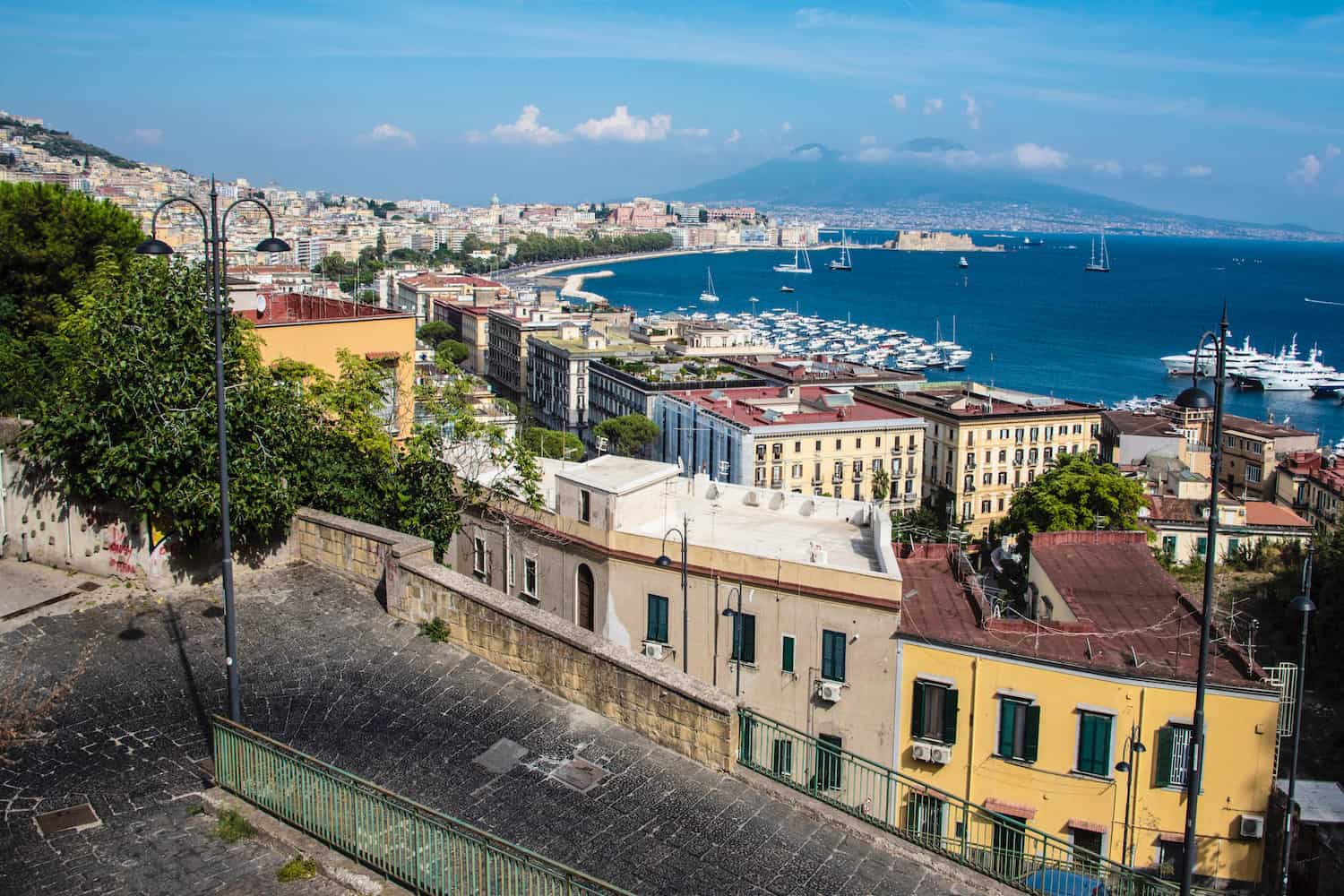
How I Came to Know Naples
One reason I’m convinced that Naples is worth visiting is because I always have been. My first impression of the city, which I enjoyed via my local friend Francesco, was absolutely impeccable. After spending several days in the city center, we visited the ruins of Ercolano, drove along the Amalfi Coast and even traveled to the island of Ischia—the less famous, but more beautiful sister of Capri.
Unlike what happened across the peninsula in Puglia, my return to Naples was exactly what I expected given that amount of time that had elapsed since my maiden voyage. As an older and more traveled person, I was able to appreciate the city’s uniqueness—and yes, its imperfections—all the more profoundly. Coming back there humbled me: If you can go around the world a dozen timed and still be wowed by a place, it must be…wow!
5 Reasons to Visit Naples
Stunning views all around
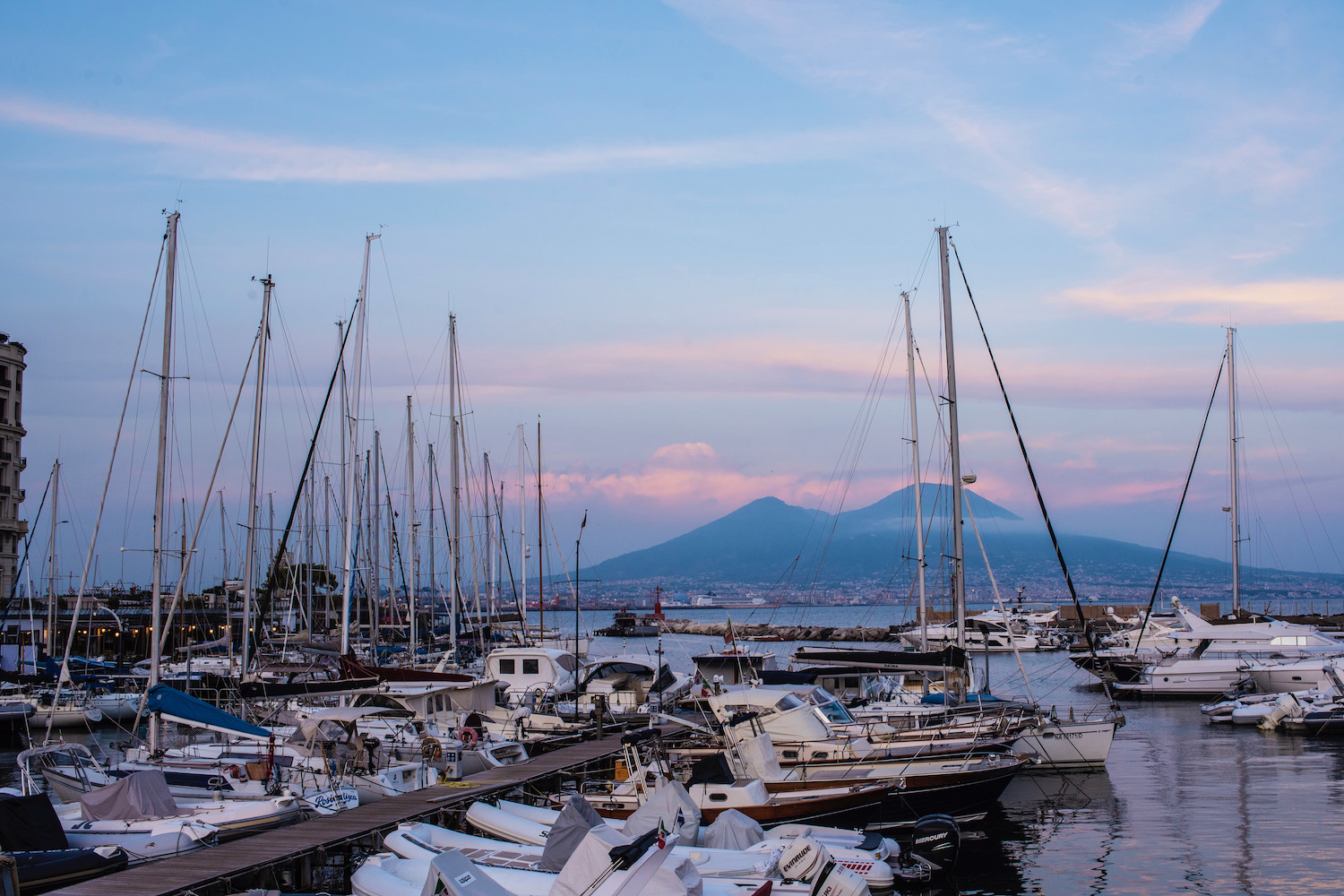
One thing most people love about Naples (present company included) is the fact that you can clearly see Mt. Vesuvius from so many points in the city. Of course, this is but one of the visual highlights of traveling here. As you make your way to famous Fontanelle Cemetery, for example, the vista from the top of the staircase is absolutely breathtaking.
The world’s best pizza

Food is definitely one thing that makes Naples worth visiting. While pizza is not the only cuisine for which the Naples area is famous, Neapolitan-style pizza is definitely the most delicious in Italy. If you want to be super touristic on your trip here, visit Pizzeria di Matteo (aka the “Bill Clinton pizzeria”), located in the heart of Centro Storico.
Naples is unadulterated Southern Italy
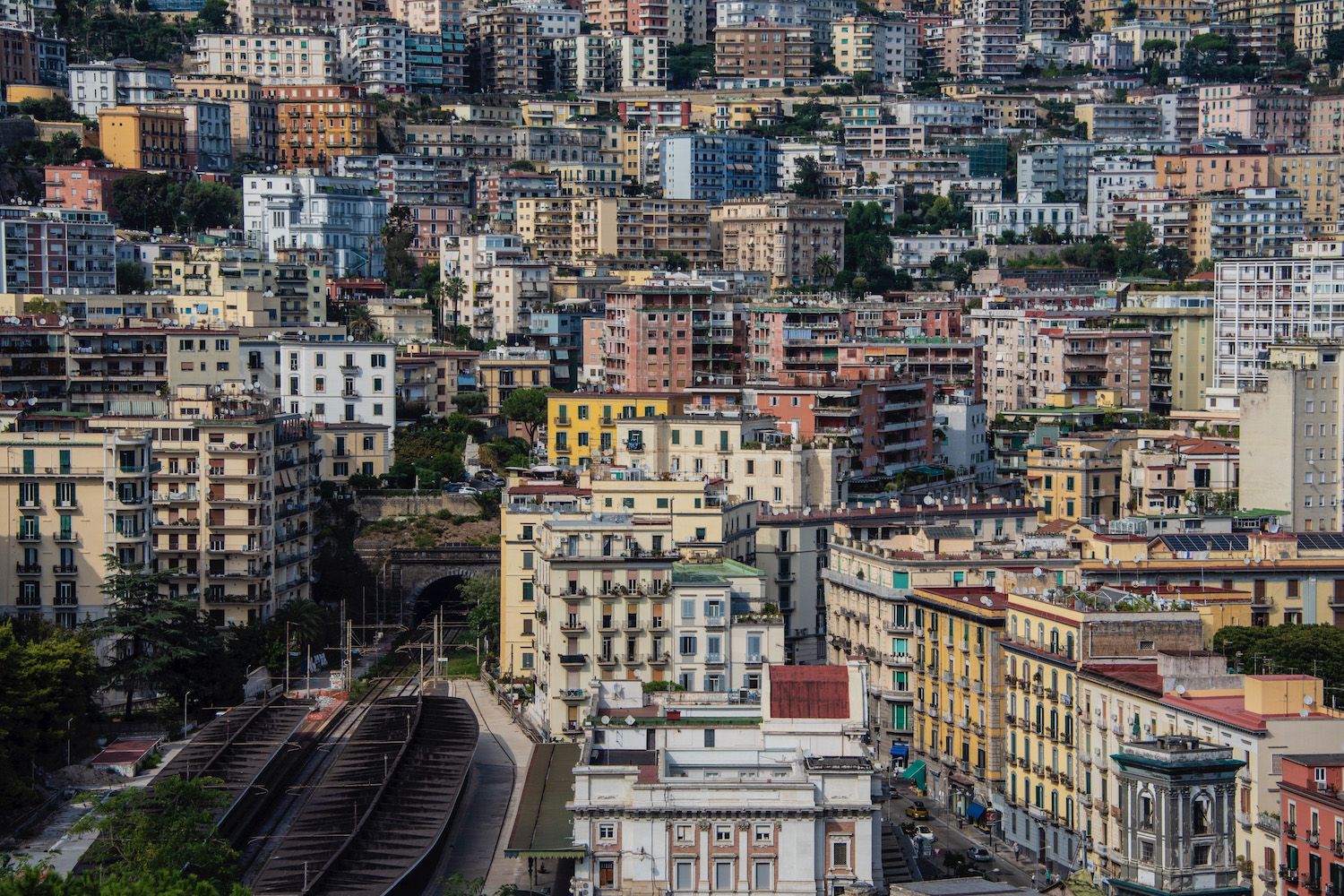
Naples is unfiltered and uncensored—wholly authentic. This has beautiful manifestations, such as colorful alleyways, unexpected street scenes and delicious food around basically every corner. However, certain parts of Naples are also rough, and maybe even dirty depending on who you ask. For better and sometimes for worse, Naples is as real as it gets.
Amalfi, Pompeii, Capri—oh my!
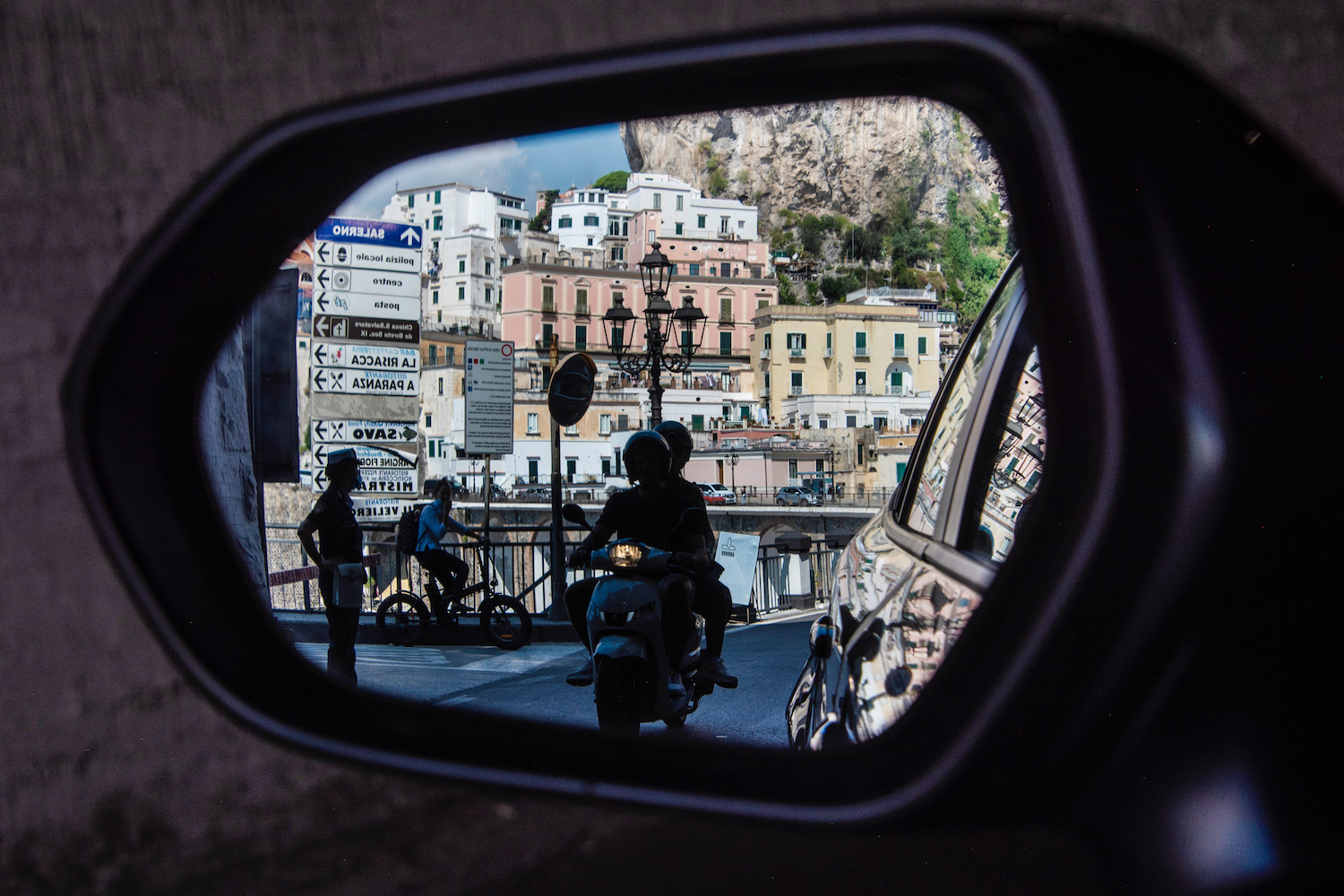
Day trips are yet another factor that make Naples worth visiting. The most obvious one of these is Mt. Vesuvius itself, whose carnage you can most clearly see amid the ruins of Pompeii (or, if you want to venture slightly off the beaten path, those in Herculaneum/Ercolano). Naples is also the gateway city to the famous Amalfi Coast, and to the islands of Capri and Ischia.
Low expectations = high enjoyment
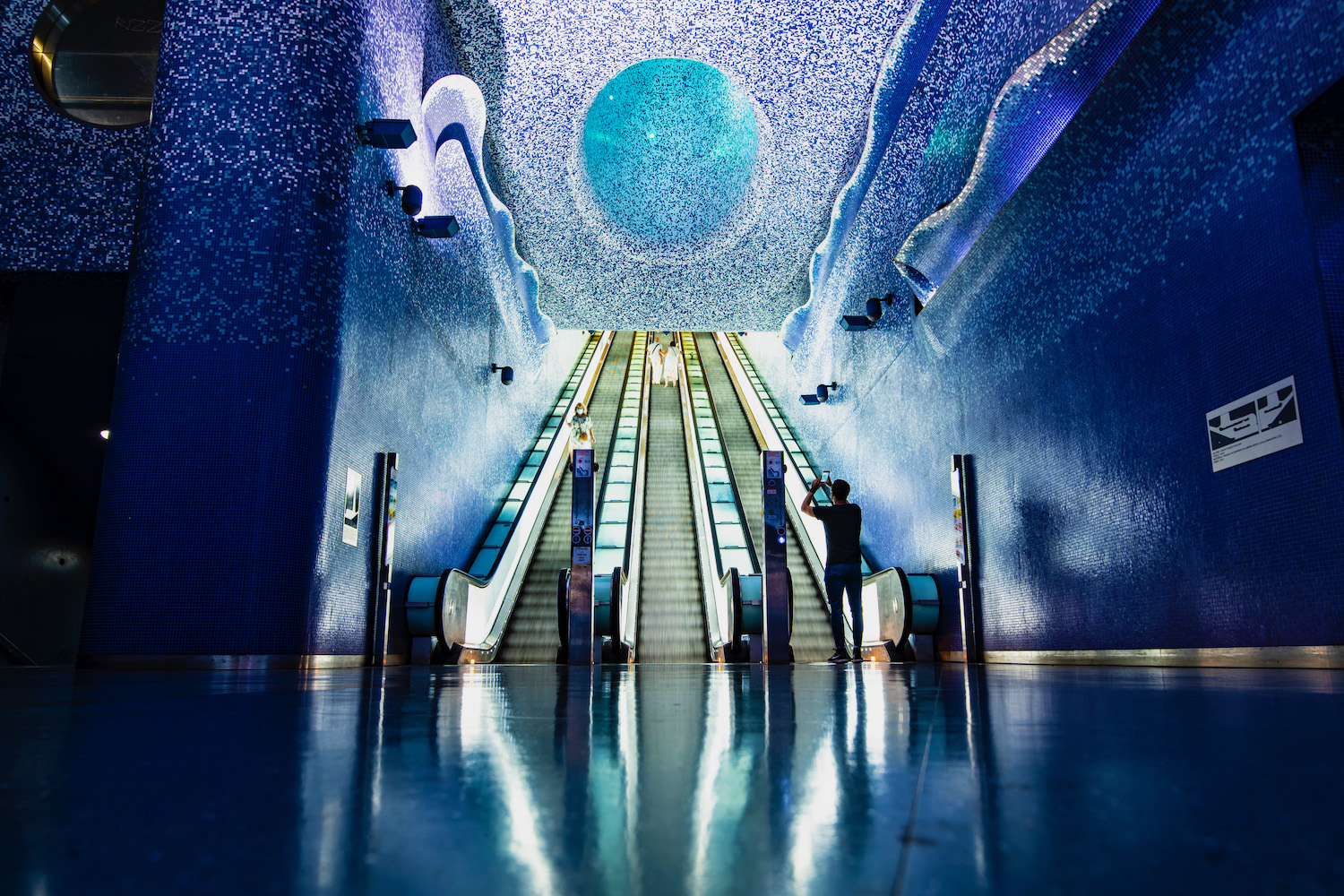
I’ll be frank: Many people who’ve never visited Naples expect it to be a mafia-infested crap hole, and only stay a night here—if they even stay the night—to take one of the aforementioned day trips. Even if you’re not as cynical as such people, the reality is that you probably aren’t anticipating to enjoy Naples. You can leave a comment if I’m wrong, but I fully believe that you will end up loving Naples at least as much as I do.
How Many Days Should You Spend in Naples?
As a general rule, I’d say you can Naples’ city center with one night and a full day there. The thing is, Naples doesn’t begin and end at its city limits. At a minimum, you will want to take a day trip to Pompeii and/or Herculaneum. You may also want to drive along the Amalfi Coast, although some travelers prefer to stay a night or two in Amalfi, Atrani or Ravello, as opposed to doing this as a day excursion.
As far as beaches, Naples is worth visiting for them, but only in a tangential way. What I mean is that the best beaches in Campania (the province where you find Naples) are along the Amalfi Coast, and on Capri and Ischia islands. While you can do in Amalfi in a day, you’ll need to stay overnight on both the islands. As a result, I wouldn’t really include sun and surf in your calculation for how long to spend in Naples.
Other FAQ About Travel to Naples
Is Naples worth visiting?
Naples is absolutely worth visiting! The historical center is one of the most authentic and unique places in Italy, in spite of being quite rough around the edges—maybe because of it. Moreover, Naples is your gateway to attractions such as Pompeii, the Amalfi Coast and the islands of Capri and Ischia.
What is the safest area to stay in Naples?
Naples’ Centro Storico (historical center) is probably the safest place in the city to stay, due to the large numbers of tourist traffic that always passes through there, as well as the quality and security of hotels and other accommodation. Although many peripheral neighborhoods are authentic and charming, I’d avoid the temptation to save money and stay there, unless you know a local.
Is it safe to walk in Naples at night?
Certain parts of Naples (again, the historical center) are perfectly safe at night, due to the large amounts of foot traffic and good lighting. However, once you walk south past Piazza del Plebiscito toward the water, things quickly start to get sketchy, particularly late at night. On the other hand, as long as you aren’t conspicuously flashing wealth and walking around intoxicated, you should be fine.
The Bottom Line
Is Naples worth visiting? Absolutely, although to be fair I do know a fair few people who dislike the hub of southern Italy. For me, there are very few cities as authentic, colorful and singular as Naples, in Italy, or anywhere else in the world. On the other hand, plenty of rumors swirl about Naples; I’d advise you to jettison these to the best of your ability before taking your trip, should you choose to go.

Robert Schrader is a travel writer and photographer who’s been roaming the world independently since 2005, writing for publications such as “CNNGo” and “Shanghaiist” along the way. His blog, Leave Your Daily Hell, provides a mix of travel advice, destination guides and personal essays covering the more esoteric aspects of life as a traveler.








